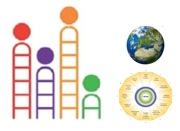
As a clinical psychologist, I get to meet with a lot of families who are feeling stressed and confused, wondering about their child's behaviour.
I get to hear a lot of questions that take the form:
"Well has he got.... ASD or ADHD or OCD... or ODD?'
Sometimes when further investigations are pursued it turns out that the child in question might meet the criteria set out by one of these diagnostic labels. Then families are usually hoping that someone is going to 'do something' about it. This is when the next stage of confusion often sets in.
In a system in where long waiting lists are a common feature of children's services, I get to hear a lot of parents speaking about their bewilderment that 'nothing, or not enough has been done'. The child has sometimes been prescribed with some medication and sometimes this has appeared to help for a while, and sometimes it hasn't. Sometimes the family are able to find a supportive group of parents who seem to share some similar challenges, and sometimes they haven't.
Often however there is or has been a lot less help available than the parents were hoping. Sometimes the pursuit of the right label takes families away from some of the key issues that urgently require more attention. Let's look at some of the similarities between children who are given these sorts of diagnostic labels
1. Presence of challenging behaviour and confusion Most often the parent is reporting some level of challenging or unusual behaviour that is difficult to understand.
2. Presence of parental stress Most often the parent is feeling pretty stressed themselves and bewildered by the sense that their efforts don't seem to be making a difference. In the confusion they have often found themselves becoming more isolated
3. The Adult-Child relationship is under strain Most often as a result of the above the Adult-Child relationships is under significant strain and may have been so for a considerable time. There are few opportunities for enjoying time together.
4. The child has some delays in their social-emotional development and needs the care of a younger child Most often when we look closely the child is demonstrating delays in their social-emotional skills - in understanding others and in the area of managing frustration
5. The adults in question are going to need to acquire advanced parenting-caring skills. The challenging truth about caring for a child who is displaying challenging behaviour is that to make a difference, the adults are going to need stamina and advanced skills.
6. Adults need to take a long view around the needs of the child and themselves The other challenging truth is that in order to make a difference the adult is going to need the strength and persistence to support the child in making progress in building confidence over long periods of time - the child is going to require higher levels of active input from adults than the child who is developing more typically.
The good news is that child development and brain development provide a very solid foundation to build an intervention and support process upon. The fact that there are so many similarities in what makes a difference means that we can get started fairly quickly on the basis of the above and can observe what happens as do. We also know that to make a difference, there are no short cuts to putting healthy Adult-Child relationships at the centre of any actions.
If you are interested in finding out more click here to find out about our courses
I get to hear a lot of questions that take the form:
"Well has he got.... ASD or ADHD or OCD... or ODD?'
Sometimes when further investigations are pursued it turns out that the child in question might meet the criteria set out by one of these diagnostic labels. Then families are usually hoping that someone is going to 'do something' about it. This is when the next stage of confusion often sets in.
In a system in where long waiting lists are a common feature of children's services, I get to hear a lot of parents speaking about their bewilderment that 'nothing, or not enough has been done'. The child has sometimes been prescribed with some medication and sometimes this has appeared to help for a while, and sometimes it hasn't. Sometimes the family are able to find a supportive group of parents who seem to share some similar challenges, and sometimes they haven't.
Often however there is or has been a lot less help available than the parents were hoping. Sometimes the pursuit of the right label takes families away from some of the key issues that urgently require more attention. Let's look at some of the similarities between children who are given these sorts of diagnostic labels
1. Presence of challenging behaviour and confusion Most often the parent is reporting some level of challenging or unusual behaviour that is difficult to understand.
2. Presence of parental stress Most often the parent is feeling pretty stressed themselves and bewildered by the sense that their efforts don't seem to be making a difference. In the confusion they have often found themselves becoming more isolated
3. The Adult-Child relationship is under strain Most often as a result of the above the Adult-Child relationships is under significant strain and may have been so for a considerable time. There are few opportunities for enjoying time together.
4. The child has some delays in their social-emotional development and needs the care of a younger child Most often when we look closely the child is demonstrating delays in their social-emotional skills - in understanding others and in the area of managing frustration
5. The adults in question are going to need to acquire advanced parenting-caring skills. The challenging truth about caring for a child who is displaying challenging behaviour is that to make a difference, the adults are going to need stamina and advanced skills.
6. Adults need to take a long view around the needs of the child and themselves The other challenging truth is that in order to make a difference the adult is going to need the strength and persistence to support the child in making progress in building confidence over long periods of time - the child is going to require higher levels of active input from adults than the child who is developing more typically.
The good news is that child development and brain development provide a very solid foundation to build an intervention and support process upon. The fact that there are so many similarities in what makes a difference means that we can get started fairly quickly on the basis of the above and can observe what happens as do. We also know that to make a difference, there are no short cuts to putting healthy Adult-Child relationships at the centre of any actions.
If you are interested in finding out more click here to find out about our courses

Comments